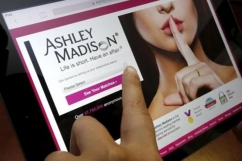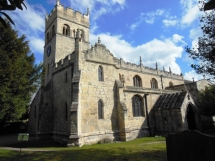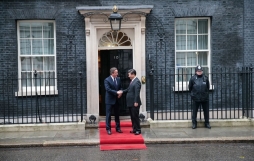"Apologise and make reparations for slavery". So went the demand from Sir Hilary Beckles to David Cameron as he prepared to visit Jamaica. In an open letter in the Jamaica Observer, the academic wrote: "You are a grandson of the Jamaican soil who has been privileged and enriched by your forebears' sins of the enslavement of our ancestors...You are, Sir, a prized product of this land and the bonanza benefits reaped by your family and inherited by you continue to bind us together like birds of a feather.
"We ask not for handouts or any such acts of indecent submission. We merely ask that you acknowledge responsibility for your share of this situation and move to contribute in a joint programme of rehabilitation and renewal. The continuing suffering of our people, Sir, is as much your nation's duty to alleviate as it is ours to resolve in steadfast acts of self-responsibility."
Should the UK pay compensation for something that is centuries old? It is an interesting question that's not as straightforward as it sometimes might appear. Thinking about this, I was reminded of a young black man in Brighton library who interrupted my talk on the existence of God by demanding that I apologise for slavery. "Why? I don't have any slaves...I've never had any slaves, and my ancestors were farm labourers who never owned any slaves either, and didn't have the vote when slavery was legal in this country," was my response. But my friend was adamant – he was playing the racist card. He was black and therefore a victim (despite the fact that he and his parents were from London). I was white and therefore an oppressor. It is a simple and dangerous equation; it was just as likely that his ancestors from Nigeria were slave traders. Slave trading between African peoples was common, and the Arabs were the primary slave traders for many centuries. It is estimated that in the Middle Ages more than one million white Europeans were traded as slaves across the Mediterranean.
The subject came up again a few weeks ago when I went to record a BBC Radio 4 programme on the ex-slave Frederick Douglass and his visits to Scotland.
Opera singer Andrea Baker, herself a descendent of African American slaves, was presenting a programme about her hero, the aforementioned Frederick Douglass. I was expecting a short interview and interesting discussion on this fascinating man and his impact on Scotland. Instead, we had what politicians call a 'full and frank' discussion for over an hour as Andrea tried to get me to apologise for my Church's actions, 170 years ago.
When almost a third of the ministers, elders and people left the Church of Scotland in 1843 to form the Church of Scotland, Free, they lost their buildings, schools and finance. They needed to fundraise for the hundreds of new churches, manses and schools that needed to be built. A small part of that money (£3,000 – equivalent to £300,000 in today's terms) came from the Southern Presbyterian Church, which included among its members some people who were slave owners. Frederick Douglass came on a campaign to persuade the Free Church to 'send back the money'. His mission failed, as he got involved in the church politics of the period. My own church, St Peter's in Dundee, was at the forefront of the send back the money campaign. So was my conscience clear? Andrea wanted to know if I could 'metaphorically' send back the money.
And there was my problem. What would 'metaphorical' sending back of the money mean? Do I have the responsibility, or even the right, to repent for other people's sins? Would that not just be gesture politics? I felt that I was being emotionally blackmailed to make a meaningless gesture.
And yet, Andrea did have a point. The fact is that we are not born into this world as blank slates. We are born into a culture and context that has been shaped by the past. I used to be a minister up in Brora, Sutherland; an area of the country infamous for the Highland Clearances, 200 years ago. The Duke of Sutherland forcibly cleared the land of many of its people in order to make way for sheep. It was violent, cruel and capricious, and its memory lingers. Not least because a massive statue of the Duke, on top of Ben Braggie, dominates the landscape in that part of the world. I had an elder who wanted to go and blow the thing up, a view I had some sympathy for! I once wrote a column for the local newspaper critiquing the Duke, and it was not published because "You need to forget the past". The thought struck me that we seem to be very quick to forget the sins of the past, but very slow to relinquish the fruits of the past. The current Countess of Sutherland owes much of her considerable wealth to this rather dubious past.
So back to slavery. Can or should we make atonement for the past? Should the great seaports of Bristol, Liverpool and Glasgow, which flourished because of slavery, make reparations? How far back do we go? Should the Germans make reparations for the slaughter of the two World Wars? What about the Italians for the Roman invasions? Or the Spanish for the Inquisition?
The truth is that we live in a broken, complex messed up world. We can never make atonement for what we or our ancestors have done. The minute we begin to unravel the complex mess we have inherited and add to, it just gets messier. Who will rescue us from this body of death? Thanks be to God, through our Lord Jesus Christ. He is indeed the atoning sacrifice for our sins, and not only for ours, but also for the sins of the whole world (1 John 2:2).

















